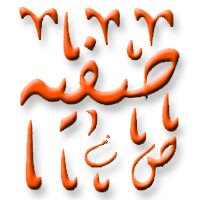Sunday, December 30, 2012
Should Muslims Celebrate Christmas, New Year's, and Other Non-Muslim Holidays?
Narrated Anas bin Malik (ro): The Prophet (saw) came to Medina with two days they played in. The Prophet (saw) said, "What are these two days?" They said, "These are two days we used to play in, in our Jahiliyah." The Prophet (saw) said, "Allaah has replaced them with two better days: Eid al Adhaa and Eid Al Fitr." (Abu Dawood #1134, 1/675)
This is a picture of me taken with a Santa Claus at one of the department stores in New York City. I was about 3 and 1/2 years old at the time. My Christian mother used to take me for pictures with Santa during the holiday season.
Oddly, no pictures of my little brother and Santa exist in the huge collection of family photos that I inherited from my mother. Not sure why. There is a 4-year age difference between my brother and me.
Although my mother was a Catholic when she married my Jewish father, she never converted to Judaism, and she always practiced her faith.
But my brother and I were not raised as Christian children: we were raised Jewish (until my parents divorced when I was around 12 years old, and she converted us to Catholicism - story for another time!). Occasionally, my mother took us to a Catholic mass when we visited her family in another state. We always had a Christmas tree, and got Easter baskets. Likewise, we celebrated Passover, Hannakuh, Rosh Hashana, and other Jewish observations. Our identity was Jewish, but there was always that pesky issue of my mom's Christianity and the traditions she introduced into our home.
I remember asking my Jewish grandmother once why Jews didn't observe Christmas. Her answer was simple in a manner that satisfied me. She said something to the effect of, "We're Jewish. That's what 'they' do. We have our own holidays and celebrations." She continued to explain that we only had Christmas trees and Easter baskets out of respect for my mother's religion. She also explained to me how our beliefs were different from those of Christians.
My Jewish family tried real hard to respect my mother and make our interfaith family successful.
This year, I noticed that there seems to be a switch in the way many Muslims perceive Christmas and the like.
"Merry Christmas" wishes, pictures of Muslims in Christmas wear, and pictures of Muslim children with Ginger Bread men cookies were abundant in places like FaceBook.
There was a story online about a group of Muslims who held a Christmas party for their Christian neighbors.
Br. Suhaib Webb shared that the European Fatwa Council, made up of 20 of the world's great Muslim Jurists, stated that it is permissible to greet people on these days (exchange gifts even) as long as it does not involve approving any creedal differences between us, or open evil and shirk. The rationale for the permission is that the fatwa against Muslims "celebrating" are rooted in an age of empire and war (Crusades) and that the social reality does not fit ours in the current day and in the West.
Sh. Ali Gomaa from Egypt, on his website, also issued a similar fatwa.
But, MuslimMatters posted an awesome khutbah by Sh. Mustafa Umar (Islamic Institute of Orange County), Living as a Muslim in a Christmas World, that gives a different perspective, one like my Jewish grandmother's, and one I believe is more in line with Islaam. The sheikh talked about evaluating the way we make our own Muslim holidays meaningful for our Muslim children and family, and questions how we raise our children concerning their Muslim identities. Our answers and responses to these issues will help our kids not to be confused about their identities. They will reduce the pressure on our children to fit in, and will restore balance.
In the long run, my exposure to Christianity, Jesus (as), and non-Jewish celebrations like Christmas, had an effect on me that the efforts and intentions of my family didn't foresee: it introduced me, a Jewish child, to Jesus (as). Judaism was never to be the same for me again.
It led to a lot of questions and a life-long search for G-d which eventually ended up in me saying the Shahadah and becoming a Muslim, Alhamdulillah.
Judaism doesn't hold Jesus (as) to be a great prophet. So, it's understandable that an introduction to him (as) could be fascinating for a Jewish child. But for a Muslim child, the exposure to him (as) in a way that is inconsistent with Islaam can lead to confusion.
And it can lead to a lot of questions and a life-long search for G-d in a way that Muslims parents don't intend.
So, let us think about these things as we raise our children.
May Allaah t'ala make you successful in raising your children as righteous Muslims, and ones who will assure a seat for you in Jannah. Ameen!
Subscribe to:
Posts (Atom)





























